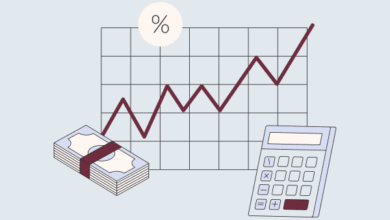

In the last few months, people have experienced a variety of economic struggles. From skyrocketing unemployment rates to the bankruptcy of thousands of businesses, 2020 has been a year of financial hardship. Throughout periods of economic uncertainty, it can be difficult to determine how to manage your money well. There are many wise financial decisions that you can make in times of crisis. In this article, we will discuss three ways that you can continue to handle your money well in spite of economic instability.
1: Be Frugal
When times are uncertain, it is important to be cautious about spending money in excess. If there are ways you can cut back, do it. This economic recession is being felt by nations across the globe. Below are a few simple tricks for saving cash:
- Go through your current subscription services. Cut off any services you do not use regularly. (music streaming, tv streaming, amazon delivery, cable, etc)
- Keep a tight budget. Make sure that every purchase you make is calculated in the overall budget.
- If you are looking for assistance with your budget, consider downloading a budgeting app (YNAB, Everydollar, Simplifi, GoodBudget)
- Make food at home. You can save a ton of money by making your own coffee and creating your own meals. When cooking at home, you greatly reduce the amount of money you spend through dining out.
- Resell products that you do not use. If you have clothes and gadgets that haven’t been used in months, consider selling them online.
If you are currently financially stable, it is important that you are prepared for any changes or unexpected circumstances that occur in the future. By diligently budgeting and saving your money, you are likely to remain stable in times of uncertainty.
2: Invest Wisely
Even though many companies are struggling, there are some that are continuing to thrive. If you are able to continue investing, look into stable long-term dividend stocks to buy and hold. Companies that are stable within this economic climate are likely to remain stable for years to come. The companies that are continuing to grow will likely be able to maintain their success. When purchasing stocks, be sure to consider the longevity of success for each business you are assessing. Some signs of a healthy stock include:
- Ability to withstand tough economic conditions
- Reasonable pricing
- Competitive advantage
When investing, it is important to diversify your portfolio. When your portfolio is diversified, risk is mitigated. When you are looking to diversify, it is important to make the following considerations:
- Vary the size of the companies you invest in
- Invest in companies across different industries
- Own mutual funds and exchange traded funds
- Time your investments correctly
When diversifying your portfolio, it is important to know when to buy and when to sell. Don’t hold on to stocks that are not displaying any success. By investing wisely when the market is struggling, you will experience greater benefits as the economy regains strength.
3: Give Back
Not only is charitable giving meaningful to your community, it benefits your personal and professional reputation. Giving back to philanthropic groups help to support the wellness of your community at large. By giving back locally, you are investing in the future success of the city you live in. Local nonprofits help support the flourishing and growth of entire towns and cities. In addition to supporting a meaningful cause, the donations you make to nonprofit organizations are tax deductible! If you need a tax break this year, charitable gifts will help you to reach your goals.
Times of economic uncertainty are stressful for everyone. Although the market is not stable, there are ways that you can be prepared for the potential financial challenges that will come your way. Through charitable giving and investing, you are becoming prepared for financial stability and growth in the years ahead. You will be equipped to handle emergency situations when you practice spending money wisely, budgeting, and saving. Take the time to assess your finances and establish your game plan for the future.




